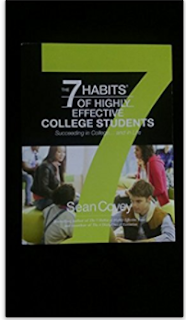2/10/2018 by Paula Sanders
“Instead of starting with the standards that must be learned, I learned to start with the student in front of me. Through focusing on student strengths, I’m able to build the resiliency and interest in my students that’s necessary to achieve academic objectives. By focusing on the positive, I build up the child in front of me to be the best version of themselves.” Nina Parish –Edutopia
 I
I have always started with the student who is in front of me. I like talking to my students and getting to know who they are and what they enjoy. This inspires me to find articles and videos which appeal to what they like and will drive them to hopefully learn more.
If you are wondering, but what about the other students and their interests. Well, each student will get a turn to share their interest. But not so much by standing up in front of the class and giving a drawn-out presentation. That’s not how it works in my classroom.
First of all, English teachers are privy to many of our student’s thoughts and interests via writing assignments, usually. Also because English teachers have an unusually massive database of bits of information, we can generally converse with our students about their interest or maybe simply comment on a paper that they wrote or even recommend a book or video or article on the subject. That’s the spark, that’s focusing on the student in front of you.
In my class, I may begin the day with a video about a rocket launch because there is a student in my class who is obsessed with space travel. That generates conversation and the student has the opportunity to share what they know and love about space travel.
When students see that you get them or understand their interest, it makes them comfortable enough, not just to share with the teacher but also with their classmates. A discussion can then turn into a learning moment of discovering and sharing and laughter and questions and curiosity and to possibly look further into a topic that they never knew they might be interested in.
This concept is not limited to an English teacher; I believe all students should start with the student in front of them. The math teacher may discover that although the student is not a top performing mathematician, they may be a top-shelf puzzler and that could turn into a whole world of discovery.
Now…go teach!




